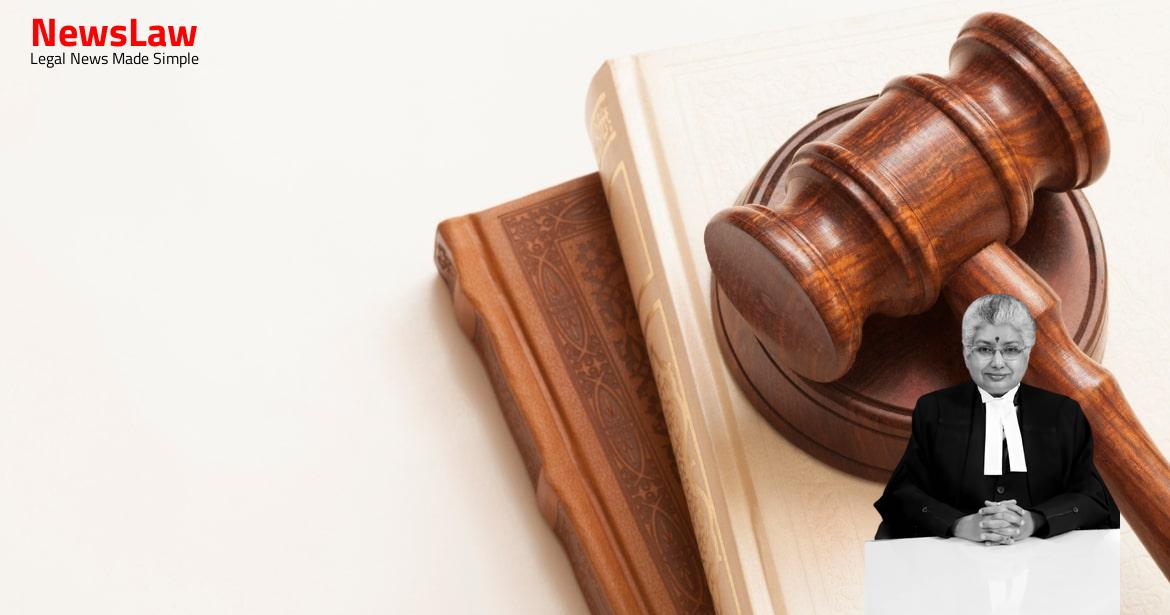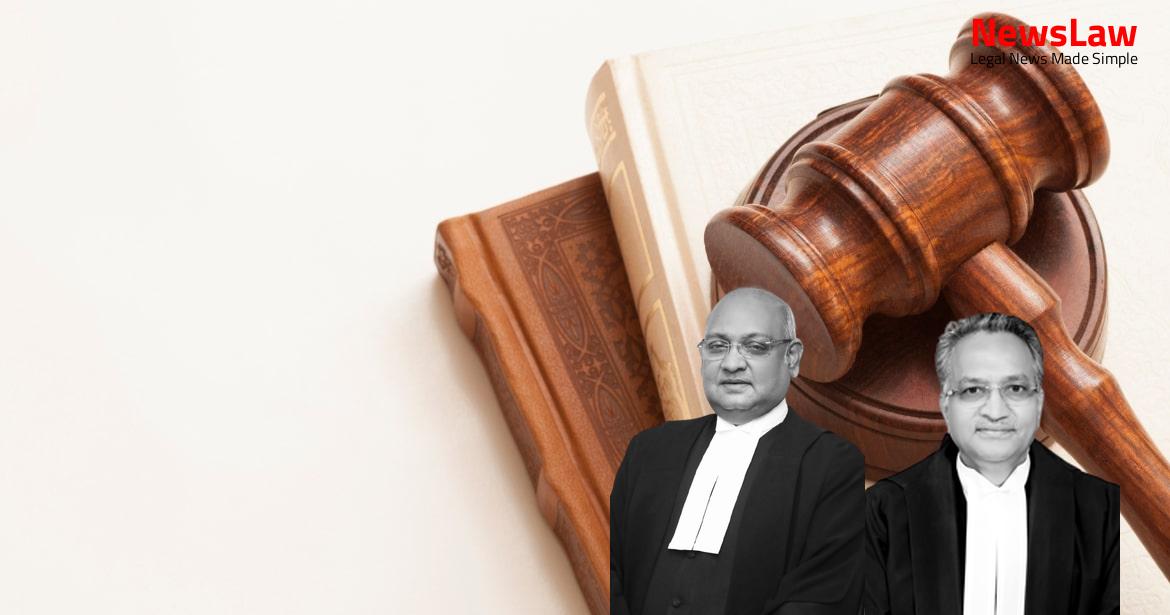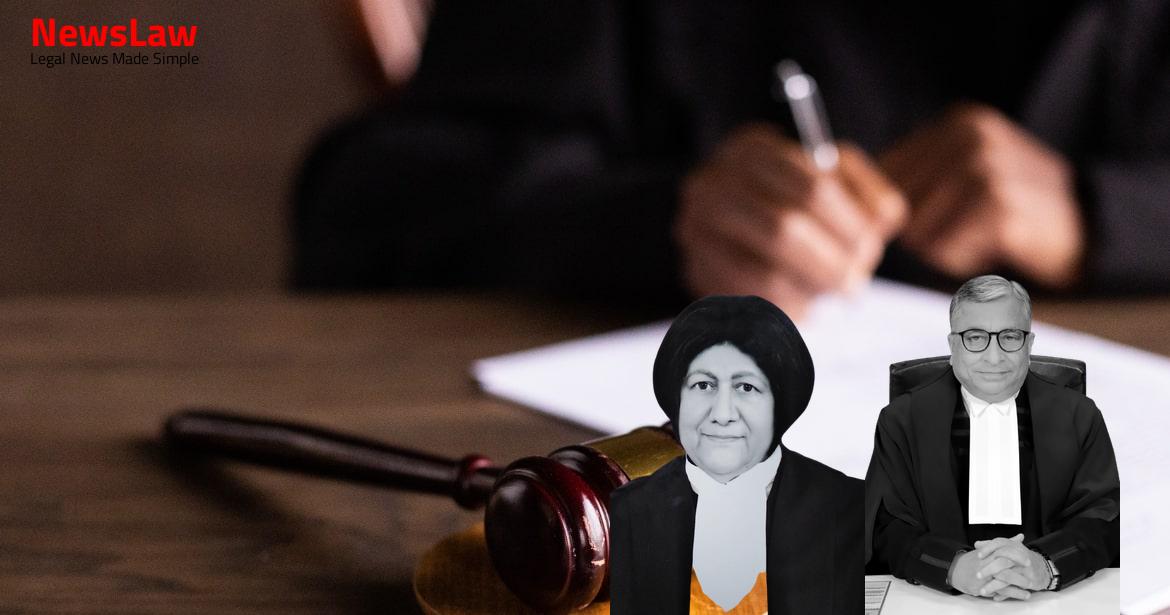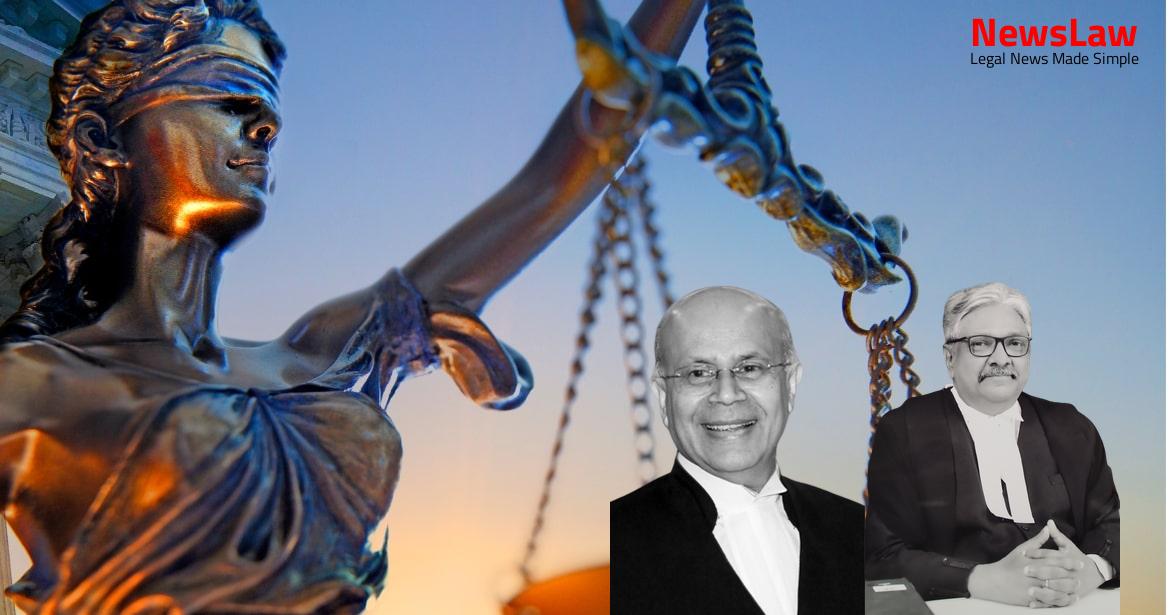Explore the nuanced legal considerations surrounding the limitation for filing appeals under the Insolvency and Bankruptcy Code (IBC) in this insightful blog. The court’s meticulous legal analysis and interpretation of time constraints play a pivotal role in shaping the outcome of cases, as highlighted in this case summary. Discover the significance of timeliness in legal procedures and the impact of adherence to statutory timelines on the outcome of appeals under the IBC.
Facts
- The statutory time limit of thirty days had expired with no application for condonation of delay
- Rule 22 of the NCLAT Rules requires every appeal to be accompanied by a certified copy of the impugned order, which was not provided in this case
- No evidence was presented to prove that a certified or free copy had not been issued to the appellant
- The IBC limits the discretion to condone delays up to fifteen days, which had already lapsed
- The NCLAT found no grounds for interference on merits even if the delay was condoned
- The impugned order dated 13 July 2020, based on Section 61(2) of the IBC, stated the appeal under Section 61(1) was barred by limitation as per the specified time limits
- Appellant filed an appeal against NCLT’s order dated 31 December 2019 regarding the invocation of bank guarantees by Respondent No 10.
- NCLT held that performance guarantees were not part of ‘Security Interest’ under IBC and refused to grant an injunction against the invocation of bank guarantee until liquidation proceedings are complete.
- Appellant did not dispute being present before NCLT when the order was pronounced.
- Copy of NCLT’s order dated 31 December 2019 was uploaded on NCLT website only on 12 March 2020.
- Appellant claims to have awaited the issuance of a free copy of the order under relevant provisions but it has not been issued.
- Appeal before NCLAT was filed on 8 June 2020 with an application for exemption from filing a certified copy of the order due to non-issuance.
Also Read: Electoral Malpractices in Mayor Election
Arguments
- Section 61 of the IBC requires appeals against orders under the Act to be filed within 30 days
- The time limit for filing appeals can be extended by a maximum of 15 days
Also Read: Balancing Power and Transparency: Electoral Bonds Struck Down, Disclosure Mandated
Analysis
- The analysis focuses on the limitation for filing an appeal against an order of the NCLT under the IBC.
- The absence of the specific phrase ‘from the date on which a copy of the order of the Tribunal is made available to the person aggrieved’ in Section 61(2) of the IBC is discussed.
- Rule 22 of the NCLAT Rules mandates that an appeal must be accompanied by a certified copy of the order.
- Time is considered essential under the IBC, as highlighted in previous cases and reports.
- Section 12(3) imposes an outer limit of three hundred and thirty days for filing appeals.
- The requirement of diligence in pursuing timely resolution of grievances is emphasized.
- Section 12 of the Limitation Act is explained in detail with regards to applying for certified copies.
- The obligations of parties to seek certified copies for appeals under the IBC are outlined.
- The overarching effect of the IBC in determining limitation periods is emphasized.
- The necessity of timely application for certified copies is reiterated in the context of the case.
- Essar Steel India Ltd v. Satish Kumar Gupta held time-limit on court proceedings as violative of Article 14, only ‘mandatorily’ struck down with narrowly defined extension allowed in exceptional circumstances.
- Regulation 40A of Insolvency and Bankruptcy Board of India provides detailed timeline for insolvency resolution process with discretionary extensions.
- Resolution Professional responsible for timeliness, required to file forms under Regulation 40B and explain delays in final Form H.
- NCLT and NCLAT have issued findings that a performance guarantee is not a ‘security interest’ subject to moratorium under IBC.
- Section 64 of IBC obligates NCLT and NCLAT to expeditiously dispose of applications with recorded reasons for any delays.
- Court stressed timeliness in IBC for stakeholder interests in Mobilox Innovations Private Ltd v. Kirusa Software Private Ltd.
- Legislature signals intent for proactive resolution by omitting ‘from date order made available’ in limitation computation under IBC.
- NCLAT in Pr. Director General of Income Tax v. Spartek Ceramics India Ltd held appeal period starts from date of knowledge of the order.
- IBC overrides inconsistencies with complete code, emphasizing timelines and diligent appeals process.
- Rule 22(2) of NCLAT Rules mandates filing appeal with certified copy of impugned order for limitation computation.
- Section 12(3) of IBC sets strict timeline of 180 days extendable by 90 days for corporate insolvency resolution process.
- Section 12(2) of the Limitation Act excludes the time taken from the date of order to it becoming available.
- Section 61 of the IBC prescribing a limitation period is subservient to the principle of lex non cogit ad impossibilia.
- The principle of lex non cogit ad impossibilia states that the law cannot mandate a person to do an impossible act.
- The appellant failed to make an effort to obtain a certified copy of the order in question
- The appellant relied on the date of uploading of the order on the website instead of applying for a certified copy
- Due to the lack of effort in securing a certified copy, the appeal filed before the NCLAT was clearly time-barred
- The lockdown and the pandemic did not affect the appellant’s right to file an appeal in this case
- The NCLAT’s decision to dismiss the appeal on the grounds of limitation was correct
Also Read: Recall of Resolution Plan Approval: Legal Analysis
Decision
- The present appeal under Section 62 of the IBC is dismissed
- No order as to costs is given
- Pending application(s) stand disposed of in Part D 30 24
- Any scope for condonation of delay expired on 14 February 2020
- The period of limitation for filing an appeal under Section 61(1) expired on 30 January 2020
- The appellant was present before the NCLT on 31 December 2019
Case Title: V NAGARAJAN Vs. SKS ISPAT AND POWER LIMITED (2021 INSC 663)
Case Number: C.A. No.-003327 / 2020



